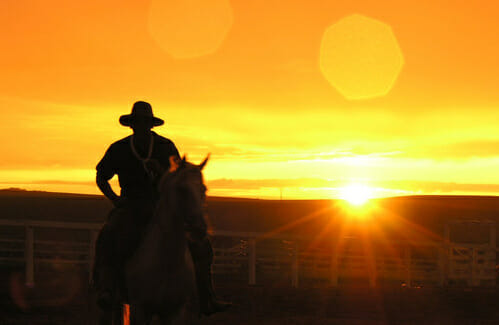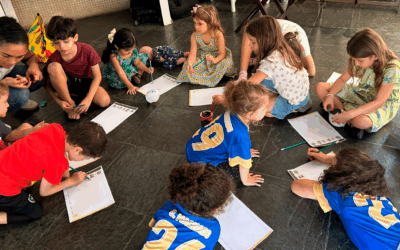 Every day around the world thousands of people stand up for an integral economy. Aldo Calliera is the owner of El Alba, a company inserted within the Economy of Communion, involved in the raising of livestock in Santiago, North Argentina. Work begins early for this country folk, even before the break of dawn. Before the day begins mate is prepared, a typical South American beverage that is meant to be sipped through a silver straw by a group of friends. With each new round, stories are shared and bodies warmed. The owner did not wish to lose this age old tradition of his guachos, and he began to attend the early morning materas, but he was surprised that with his arrival the conversation languished and silence fell on the assembly. It was the same every day. Guachos are reared in a culture where everyone falls silent when the boss arrives, not because of disappointment but because from the times of the Conquest the worker has been considered inferior to the master. Thus, Calliera went away each day feeling that he had been given a punch in the stomach, and his heart shrank at the thought at not having been able to penetrate the wall. Gradually his insistence enabled hearts to open and names be shared, all but one: Ernesto’s. One day, Calliera was programming “the service,” which is the time and location coupling for the production of calves. After the planning session the engineer who was with him, was about to issue orders to the workers, but Calliera stepped in saying: “Leave it to me, to talk to my men.” Then he explained to the workers what had to be done and, instead of simply giving them orders, he asked them for their opinion. Ernesto, whose voice the owner barely knew, spoke up for the first time: “I think that we won’t have any calves next year.” Calliera was doubly surprised and asked why. The answer was simple: there was not enough water for all the animals at the place where he had planned to take them for mating. It might seem that anyone could have said it, but in this culture it is customary to respond “Yes, sir” to one’s boss, even when you disagree. Callieri relects: “Then I realised that it is only by having an optimistic vision of others that you can draw out the best in them. Only in this way is it possible to find treasures in others that otherwise remain hidden, and to discover the best way to draw them out. Each person’s talents are like virtues that you discover when there is mutual trust.” Needless to say, the Callieri heard Ernesto’s advice and changed the “service” and things went better. . . The matera had produced a small cultural change that helped everyone to build relationships based on reciprocity that neither workers, nor forefathers would ever have immagined. Source: EoC online
Every day around the world thousands of people stand up for an integral economy. Aldo Calliera is the owner of El Alba, a company inserted within the Economy of Communion, involved in the raising of livestock in Santiago, North Argentina. Work begins early for this country folk, even before the break of dawn. Before the day begins mate is prepared, a typical South American beverage that is meant to be sipped through a silver straw by a group of friends. With each new round, stories are shared and bodies warmed. The owner did not wish to lose this age old tradition of his guachos, and he began to attend the early morning materas, but he was surprised that with his arrival the conversation languished and silence fell on the assembly. It was the same every day. Guachos are reared in a culture where everyone falls silent when the boss arrives, not because of disappointment but because from the times of the Conquest the worker has been considered inferior to the master. Thus, Calliera went away each day feeling that he had been given a punch in the stomach, and his heart shrank at the thought at not having been able to penetrate the wall. Gradually his insistence enabled hearts to open and names be shared, all but one: Ernesto’s. One day, Calliera was programming “the service,” which is the time and location coupling for the production of calves. After the planning session the engineer who was with him, was about to issue orders to the workers, but Calliera stepped in saying: “Leave it to me, to talk to my men.” Then he explained to the workers what had to be done and, instead of simply giving them orders, he asked them for their opinion. Ernesto, whose voice the owner barely knew, spoke up for the first time: “I think that we won’t have any calves next year.” Calliera was doubly surprised and asked why. The answer was simple: there was not enough water for all the animals at the place where he had planned to take them for mating. It might seem that anyone could have said it, but in this culture it is customary to respond “Yes, sir” to one’s boss, even when you disagree. Callieri relects: “Then I realised that it is only by having an optimistic vision of others that you can draw out the best in them. Only in this way is it possible to find treasures in others that otherwise remain hidden, and to discover the best way to draw them out. Each person’s talents are like virtues that you discover when there is mutual trust.” Needless to say, the Callieri heard Ernesto’s advice and changed the “service” and things went better. . . The matera had produced a small cultural change that helped everyone to build relationships based on reciprocity that neither workers, nor forefathers would ever have immagined. Source: EoC online
Listen attentively
Listen attentively




0 Comments